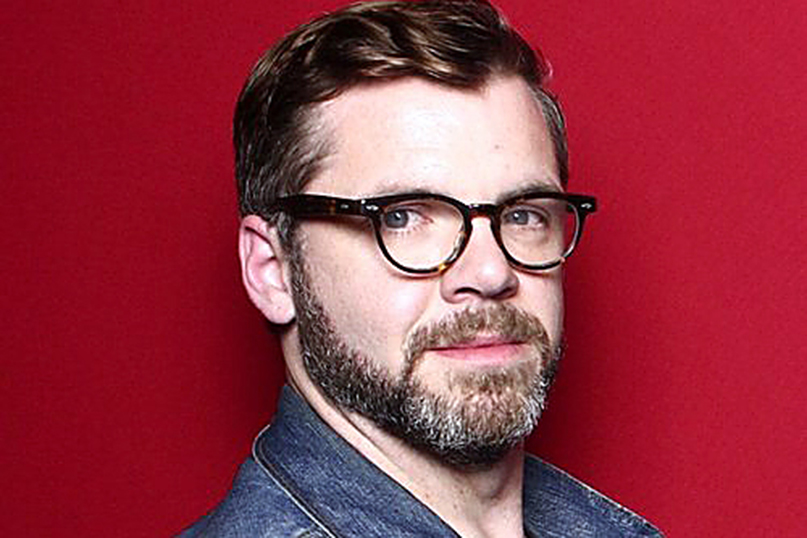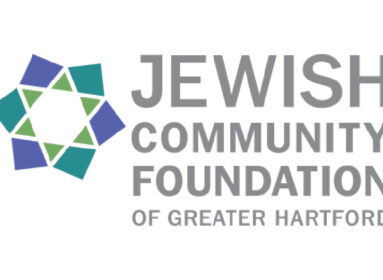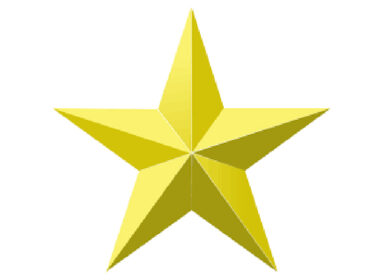
“Latter Day Jew” to screen at the Hartford Jewish Film Fest, March 14
By Stacey Dresner
HARTFORD – H. Alan Scott knew a couple of things for sure when he was growing up in the Mormon community in Jackson County, Missouri. One was that he wanted to be an entertainer. Two, that he was gay. And, three, that he was probably not cut out to be a Mormon.
Luckily for Scott, he found Judaism, which he says helped him answer a lot of spiritual questions he had growing up, and has given him a close-knit, supportive community.
Scott is the subject of “Latter Day Jew,” a documentary that takes the viewer from his Mormon roots to his conversion to Judaism at the age of 31.
“Latter Day Jew” is among 20 films featured at this year’s Hartford Jewish Film Festival on Saturday, March 14, 8 p.m.
The film begins as Scott plans his 2017 bar mitzvah – which began with him first setting out to find out what being a Jew means. Figuring it all out – after a grueling battle with testicular cancer – takes Scott from chats with his rabbi; to a Hebrew school class where he gets advice from a group of 13-year-olds; back to his family in Missouri; and to a life-changing trip to Israel where he participates in a Tel Aviv Gay Pride parade and visits the Kotel.
H. Alan Scott, now 37, lives in Los Angeles and is a writer/comedian/producer whose work has been featured on VICE, Fusion, Esquire, Newsweek, Nerdist, MTV, and OUT. He’s contributed to Jim Henson’s No, You Shut Up on Fusion, TV Land’s Younger, and BBC’s Danger Mouse. He co-hosts “You’re Making It Worse” on Dan Harmon’s Starburns Audio network and “Out on the Lanai: The Golden Girls Podcast.” (He also sports a huge Golden Girls tattoo on his arm.)
Scott recently spoke with the Ledger about “Latter Day Jew” and his path to Judaism.
Q: Did you grow up in a conservative Mormon family?
A: It wasn’t a strict Mormon family at all. My mom always joked we were too poor to be conservative. We were very working class. I wouldn’t necessarily say we were liberal, because living in Los Angeles now and having lived in New York for years, my idea of liberal has definitely changed from my Missouri upbringing.
They were moderate, very progressive people who were very accepting. My mom was always very accepting of me being gay, which is counter to what the Mormon church teaches, but she marched to the beat of her own drum and I guess so did I later on. It wasn’t a very conservative family; however, we were surrounded by very conservative people.
Young Mormon boys and girls get baptized around eight years old. I had to go through something similar to bar and bat mitzvah classes, if you will…I always failed all of my classes because I had so many questions. I joke that it’s because I was Jewish. Everything kept getting delayed, so I didn’t get baptized until I was a little bit older, around 12. I have three brothers and they had all done it already. My mom was just like, “Stop being difficult” and I just sort of did it. Also, the missionary who was in charge of guiding me through this whole process was really, really attractive and I had a crush on him, so I thought, “Let’s do it; let’s be Mormon!” But it obviously didn’t work out for me.
Q: Did you always know you wanted to be a comedian?
A: I knew that really young. I was obsessed with talk shows and the Tonight Show and Bette Midler and Barbra Streisand and all these performers… and the Golden Girls, of course. I was just obsessed with entertainment in general. …I kind of feel like I was always doing [comedy]. But I started standup when I was a teenager and stopped for a little bit when I was involved in politics, and then I got back into in my mid-20s in New York. That was where my standup career kind of started.
Q: When did you come to realize you wanted to be Jewish?
A: I went to Chicago to DePaul University. I hated college, but it was at that time that I figured out what being Jewish meant. There weren’t many Jews in my community, growing up in the suburbs of St. Louis. It was when I moved to Chicago and had classmates and friends who were Jewish, that I started to understand the Jewish community. So many of the questions I had when I was going through my baptism classes with Mormonism were being answered with a lot of the Jewish conversations I was having. It just sort of clicked.
But I didn’t do anything about it, because I didn’t think I could. I assumed the only way you could become a Jew was to get married to a Jew and at that point in our history, I didn’t have that legal right. So, this was in my 20s and I lived like a Jew by association; I was surrounded by Jews and Jewish things, and everywhere I went. It sort of happened that way. My value system aligned with Jews both intentionally and randomly.
At the very end of chemo [to treat testicular cancer] I was living in L.A. and I decided at that point I wasn’t going to wait to marry a Jew – “Why am I waiting for someone else to make me what I know that I am?” I thought. So, I decided to convert in 2013. The genesis really was my chemo.
Q: What was your conversion like?
A: After chemo I had a pretty rough go of things in terms of side effects and, emotionally, I had a lot of problems. Chemo was just really, really rough. I had a good friend who was also going through chemo at the same time and he passed away, so there was a lot of trauma around that.
My psychiatrist had suggested, that if I was feeling [like I wanted to be Jewish] I should follow through with it. So I visited some temples here in Los Angeles and none of them really spoke to me. My psychiatrist said, “There’s this one rabbi out in Culver City that you should check out.” I went and I met with him and it all just sort of clicked and he became, and is, a very good friend of mine. His name is Rabbi Zach Shapiro of Temple Akiba in L.A., and he is the one who really helped me start the process of converting. It was around 2014.
Q: What is it about Judaism that speaks to you so much?
A: When people ask, “Why did you convert?” I try to turn it around on Jews and I say, “Why are you Jewish? You are actively choosing every day to be a Jew. You only think that it is just because you were born that way or your family is, but that’s not why you are still Jewish. You have a choice…in this world to be something other than what you were told to be.”
I could go down a list of the reasons why I love Judaism: It’s the community, the value system, it is because I believe in the spiritual guidance Judaism gives me, how it grounds me, and how I feel support from the community – and all of those things.
People ask if I am religious. I wouldn’t necessarily say I’m religious, and that comes from a background of being surrounded by very intense religion. I think that makes me a little hesitant to say I am super religious. But that said, I always say I am incredibly faithful to the Jewish community, and that’s where my faith lies – in the community and the value system that the community gives me.
“Latter Day Jew” will screen at the Hartford Jewish Film Festival, Saturday, March 14, 8 p.m., at the Mandell JCC, 335 Bloomfield Ave., West Hartford. Tickets: $12/in advance, $15/at the door. To purchase tickets call (860) 231-6316, or email teckets@hjff.org.







 Southern New England Jewish Ledger
Southern New England Jewish Ledger














